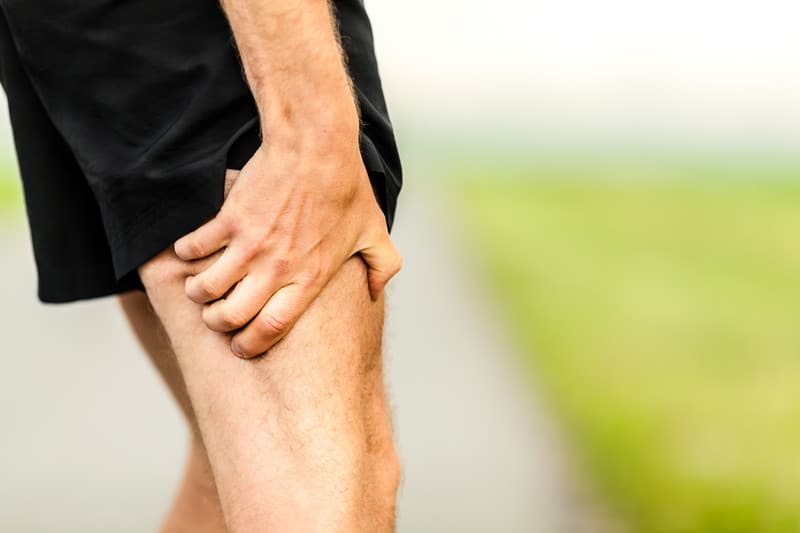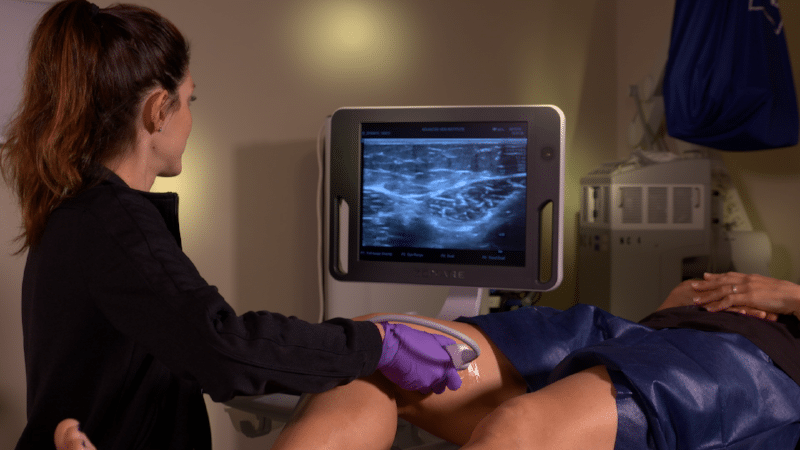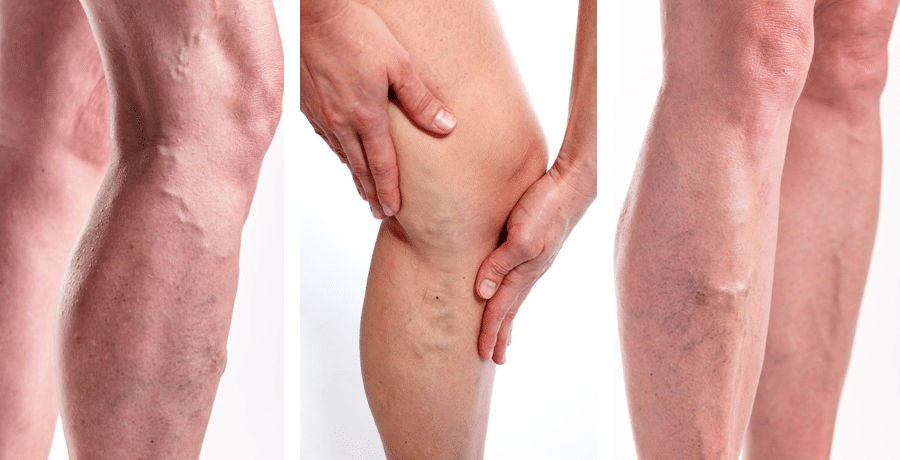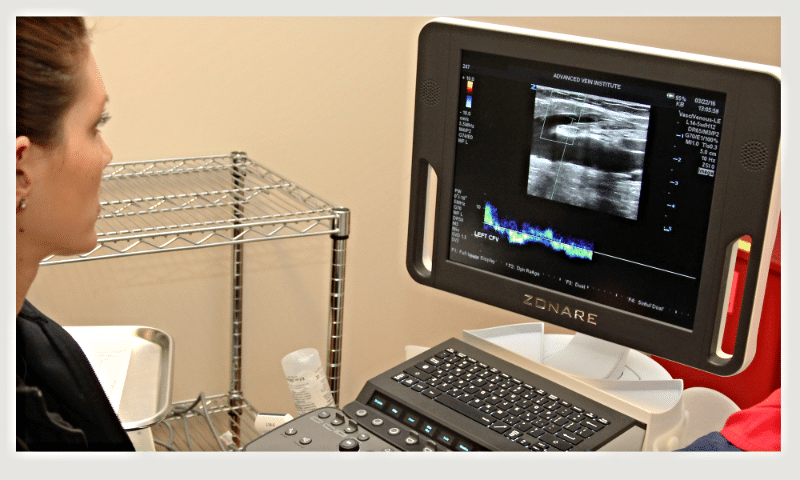Can Venous Insufficiency be Reversed?
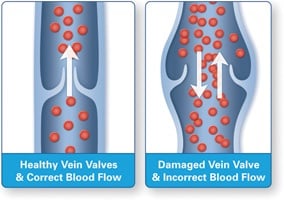
Can Chronic Venous Insufficiency (CVI) be reversed?
Unfortunately the short answer to this question is no; but CVI can be treated with minimally invasive procedures which can reduce symptoms and improve quality of life tremendously!
Chronic Vein Insufficiency Causes
In order to understand why venous insufficiency or peripheral venous insufficiency cannot be reversed, we must look at what causes venous disease. The most prevalent cause of venous insufficiency is genetics. A family history of vein disease is the biggest predictor of whether or not most people will develop vein problems. If a parent, grandparent, aunt, or uncle has or had problems with veins, it is likely that the reason you have developed them is purely genetic. Currently in medical research, there is no way to prevent this trait from being passed down the family tree.
Another venous insufficiency cause is hormones. Particularly in women, any shift in hormones; normal menstrual cycle, hormonal birth control, hormone replacement, menopause, and a combination of factors in pregnancy; cause the valves and walls of superficial veins to become weak. It is the weakness of these vein structures that cause the symptoms associated with venous insufficiency including: leg fatigue, leg heaviness, leg swelling, nighttime leg cramps, leg pain, restlessness of your legs, vein itching, itchy legs, prominent varicose veins, and spider veins.
Trauma is another cause of venous insufficiency. Although only a few cases of venous insufficiency can be linked to trauma alone, it is quite possible that a traumatic injury to the leg can cause enough damage that would affect the venous system.
Research has suggested that other health conditions may contribute to the weakening of the venous system including; lower extremity lymphedema, diabetes, obesity, smoking, hypertension, and arterial disease. However, direct correlations among these factors are still being researched, and current studies reveal conflicting results.
Regardless of which of the above venous insufficiency causes directly contribute to your specific venous condition, once the superficial veins are insufficient (weak); similar to a stretched out rubber band, there is not a way for these veins to regain their elasticity. It is the loss of elasticity or compliance that causes symptoms. These peripheral venous insufficiency symptoms become worse as time progresses and can be aggravated by things such as standing in one place (working as a hairstylist, teacher, cashier) and sitting for long periods of time (driving, desk jobs, flying in a plane). At night leg restlessness and leg cramping can wake people from sleep or make it difficult to fall asleep. Summertime heat can aggravate symptoms as it causes veins to become dilated and weaker.
Chronic Venous Insufficiency Treatment
Although there is no cure for venous insufficiency or venous disease, symptoms can be helped with compression stockings, exercise, cooler weather, leg elevation, and some homeopathic regimens. When these conservative methods no longer help, straight forward, minimally invasive procedures exist to alleviate the discomfort associated with venous insufficiency. These modern techniques cause little pain and fast recovery for the sufferer.
If you are experiencing leg fatigue, heaviness, swelling, night cramps, pain, restlessness, itching, prominent varicose or spider veins, have your legs evaluated by our qualified Vein Specialist to discuss appropriate treatment options for your specific case.
DVT and Varicose Veins during Pregnancy Pregnancy is a risk factor for the development of a blood clots with an incidence that is 4 to 50 times higher compared to non-pregnant women. Increased risk for development of a blood clot is highest in the postpartum period, with the most common occurrence of clot formation in…
Read MoreDeep Vein Thrombosis and Travel Ready to enjoy some summer time travel? Make sure your trip is not shortened by a serious health concern. Small, cramped seating on an airplane, or sitting in a car for a prolonged period of time, may be more of a problem that just causing discomfort. Inactivity in a confined…
Read MoreIn the second of this educational video series, Jilanne Rose talks about the pain involved in various Varicose Vein Treatments. In some cases it’s negligible! Transcript The ease with which we can eliminate varicose veins depends solely on what type of underlying problems you have. That question can’t be easily answered until after a thorough…
Read MoreWhat is Restless Leg Syndrome Restless leg syndrome (RLS), also called Willis-Ekbom disease (WED), is a common sleep-related movement disorder characterized by an unpleasant urge to move the legs. Symptoms often occur during periods of inactivity; particularly in the evenings. This urge to move is sometimes relieved by moving ones legs. During sleep, most patients’…
Read MoreOur own Dr. Jilanne Rose answers questions on Varicose Veins, Spider Veins, Vein Treatments and Insurance Coverage for Vein Treatment in Arizona. Jilanne is a true Varicose Vein Specialist as she has years of education and has been trained by the top experts in the field. She has performed over 10,000 vein care procedures herself. This is one…
Read MoreRisks of Deep Vein Thrombosis Deep Vein Thrombosis (DVT), also referred to as Deep Venous Thrombosis, is a blood clot located within a deep vein, usually in the leg. A blood clot that breaks free and travels up to the heart or lungs is referred to as a Pulmonary Embolism (PE), which can stop blood…
Read MoreWhat Causes Spider Veins? For many people who suffer from spider veins, one of their biggest questions is “What causes spider veins?” Spider Veins, also known as telangiectasia, are small veins located just under the surface of the skin. Most often found on the leg, they can either be very small and hardly noticeable, or…
Read MoreAre varicose veins covered by insurance? The answer is YES, varicose vein treatment is covered by most commercial insurance carriers such as Blue Cross Blue Shield, Champus, Aetna, Cigna, Humana, Health Net, Tricare, UMR, and UnitedHealthCare to name a few. Medicare and AHCCCS will also cover treatment. Many people only try home treatment for varicose veins…
Read MoreAre all vein clinics created equal? No they are not! Med Spa – You can turn on the television or radio at any time of the day and hear countless advertisements for “quick” or “painless” vein treatments. Go to this clinic or that medspa, and they assure you that your legs will look great in no…
Read MoreAside from conservative therapies for vein insufficiency, when your symptoms get to the point that these no longer work, or you want a more permanent solution, there are several methods to treat vein disease. All of them, regardless of method, aim to improve circulation and minimize symptoms by eliminating the abnormal vein. These methods include…
Read More

